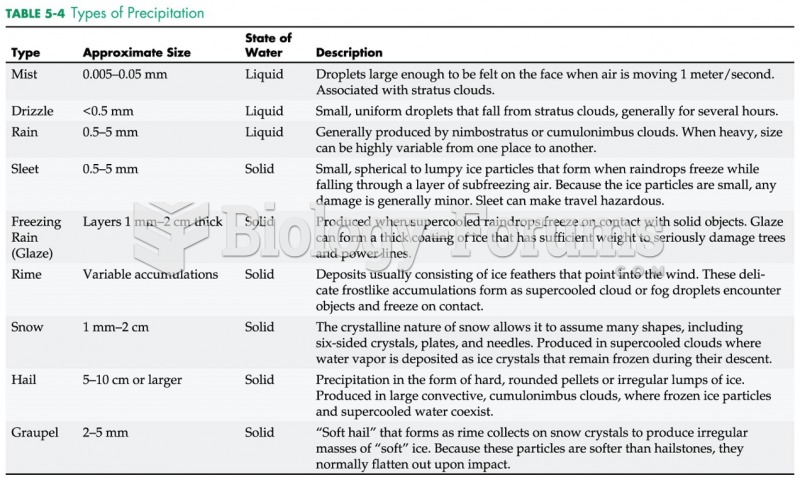|
|
|
About 600,000 particles of skin are shed every hour by each human. If you live to age 70 years, you have shed 105 pounds of dead skin.
In Eastern Europe and Russia, interferon is administered intranasally in varied doses for the common cold and influenza. It is claimed that this treatment can lower the risk of infection by as much as 60–70%.
Medications that are definitely not safe to take when breastfeeding include radioactive drugs, antimetabolites, some cancer (chemotherapy) agents, bromocriptine, ergotamine, methotrexate, and cyclosporine.
Automated pill dispensing systems have alarms to alert patients when the correct dosing time has arrived. Most systems work with many varieties of medications, so patients who are taking a variety of drugs can still be in control of their dose regimen.
In inpatient settings, adverse drug events account for an estimated one in three of all hospital adverse events. They affect approximately 2 million hospital stays every year, and prolong hospital stays by between one and five days.
 Types of bariatric surgery; A, laparoscopic adjustable gastric banding; B, Roux-en-Y gastric bypass.
Types of bariatric surgery; A, laparoscopic adjustable gastric banding; B, Roux-en-Y gastric bypass.
 A demand delivery system uses a fuel-pressure regulator attached to the fuel pump assembly inside ...
A demand delivery system uses a fuel-pressure regulator attached to the fuel pump assembly inside ...





